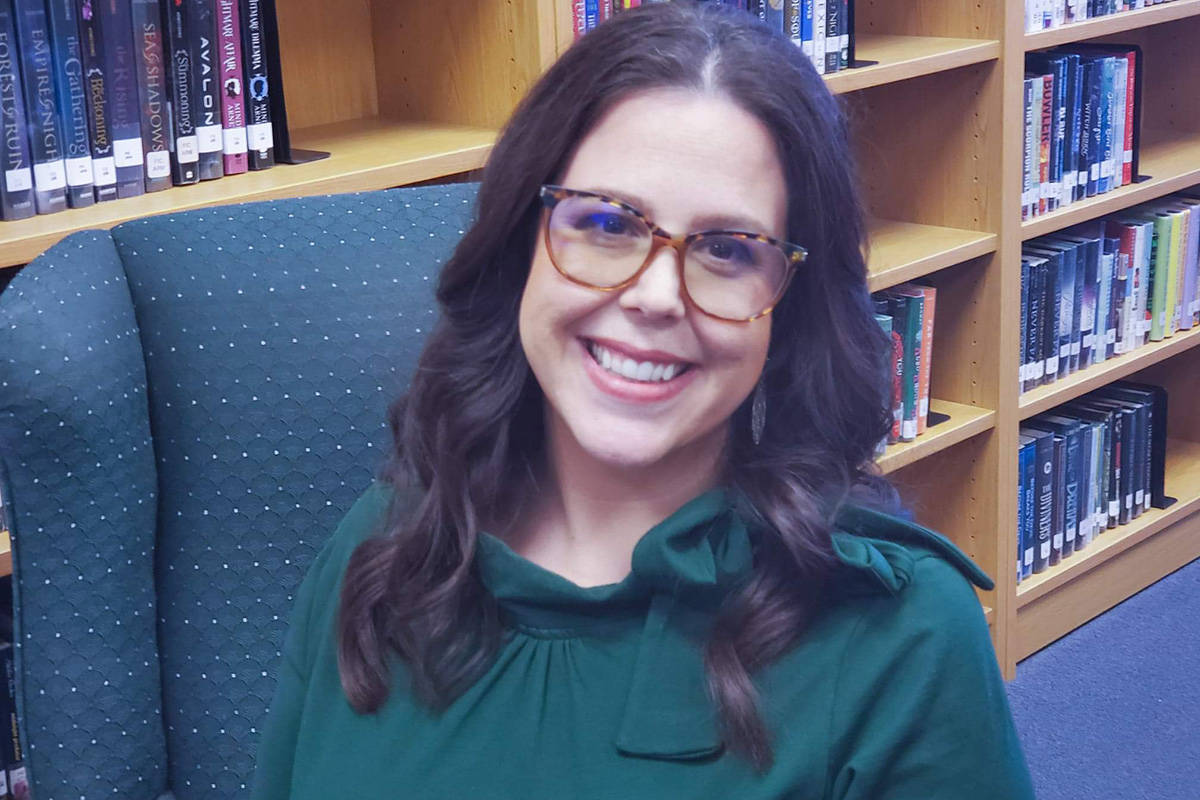Coronavirus pandemic has thrown wrench into candidates’ campaigns
Alexis Salt had a plan.
The Indian Springs High School teacher and first-time candidate for Clark County School District Board of Trustees hoped to attend events at every school in District E, as well as parent gatherings and other meet-ups. By making as much face-to-face contact with voters as she could, Salt hoped to overcome the considerable name recognition of her incumbent opponent, trustee board President Lola Brooks.
Then novel coronavirus concerns effectively shut down her city.
Schools were closed. Emergencies were declared. The social gatherings she had hoped to build her campaign around were outlawed. The usual invitations for endorsement interviews aren’t coming.
“I don’t know what I’m going to do, honestly,” Salt said. “I have a plan, but COVID-19 has thrown one heck of a wrench into my plan.”
A lot of campaigns felt the wrench this week.
Kevin Williams, a Republican running for District B in the Clark County Commission, said his campaign will have to shift its main focus to social media with few other ways to get the word out.
Lisa Song Sutton, a Republican running for Nevada’s 4th Congressional District, is moving planned in-person events to Facebook Live and Zoom sessions.
Campaigning with tech
The Nevada State Democratic Party is recruiting volunteers and training organizers by phone.
Even the nationwide campaign of President Donald Trump has suspended monthly door-knocking and in-person training operations, instead making a push for volunteers to call potential Trump voters. The campaign has also launched a new website, Army for Trump, which allows voters to volunteer online or record social media testimonials.
With less than three months until the June 9 primary, this is typically a time for campaigns to ramp up. But social distancing has greatly limited traditional campaigning, while voters — and even politicians themselves — have more pressing issues at hand.
Felicia Ortiz, who’s up for re-election to the Nevada State Board of Education, said her focus is on feeding children who may not eat regularly outside of school hours. Campaigning with such a glaring problem to solve seems frivolous.
Ortiz, Salt and other candidates wondered out loud if there would even be a primary. An inquiry to the Nevada secretary of state’s office about the chances of postponing the June 9 primary yielded no response.
Ortiz said she would normally be knocking on doors, putting up signs and buying advertising right now, but all of that has been placed on hold.
She would also be hosting fundraisers or soliciting donors through email lists, but she said that doesn’t feel right at a time when many folks are facing unemployment due to coronavirus-related closures.
“I’m asking people, if they have the means, to donate to (Southern Nevada nonprofit) Three Square instead of to me,” Ortiz said. “Let’s get people fed. I’ll worry about the campaigning later.”
Money in a time of coronavirus
Fundraising during a worldwide crisis is understandably tricky.
First-time donors are hard to court without face-to-face meetings or a sophisticated online operation, and regular donors are beginning to clam up as major economic uncertainties loom.
But for Rory McShane, who runs Republican campaigns up and down the ticket in several states out of his Las Vegas office, campaigning is sometimes about finding a silver lining.
“Candidates usually have to split time between calling donors and attending events,” McShane said. “If you don’t attend their events, the local clubs and the activists get mad. But if you don’t raise money, the national committees won’t support you.”
The cancellation of virtually all political events gives candidates more time to make fundraising calls, he added, but the rate of return has slowed.
“Everyone invested in the market has taken a hit, so you hear ‘I just lost $100,000 in the market’ or ‘my business is hurting,’ ” McShane said.
The lack of face-to-face options is a challenge, McShane said. Even his corporate clients are having to transition into teleconferences. But a political consultant’s job is to adjust.
“It’s a challenge, but it’s also an opportunity,” he said.
Incumbents busy
Southern Nevada’s three Democratic congressional incumbents have been too busy to shift much focus to their re-election campaigns.
Rep. Steven Horsford wrote a section of the latest sweeping COVID-19 spending package dedicated to providing more unemployment resources to states, while Rep. Susie Lee pushed through a section on expanded paid family leave options in the same legislation.
Rep. Dina Titus, whose district includes the mostly shut down Strip, has led the delegation’s lobbying for congressional support for the tourism industry.
Each has had to adjust office hours, as well as move meetings and town halls to digital media.
Titus even had to cancel a popular annual event in which her office offers free tax filing services for constituents, spokesman Kevin Gerson said.
“We know this situation will get worse before it gets better, but our team is committed to providing our constituents with updated information and helping those who are worried about putting food on the table,” Gerson said.
Roberta Lange, one of three Democrats vying for the vacant District 7 seat in the Nevada state Senate, said she’s suspended all door-to-door and in-person meetings for her volunteers due to the health concerns of COVID-19.
Lange is a retired teacher and former chair of the Nevada State Democratic Party. She is running against two Democratic Assembly members, Ellen Spiegel and Richard Carrillo, in a race that will be decided by the June 9 primary — meaning she only has just over two months to make her case.
Her campaign is making some headway through voter phone calls, Lange said. Although just a candidate, she has tried her best to point those concerned about lingering unemployment, rent and utilities payments or even food insecurities to services.
She said the same resilience shown by the Las Vegas community will be needed again even after threats of COVID-19’s spread are over, noting that the next Legislature will probably have to deal with major fallout from the closures of schools, casinos and other businesses.
“This has actually made me more determined than ever to represent this community,” Lange said. “Just because this happened — that doesn’t mean this campaign is over. We’re still getting our message out.”
Contact Rory Appleton at RAppleton@reviewjournal.com or 702-383-0276. Follow @RoryDoesPhonics on Twitter.


















